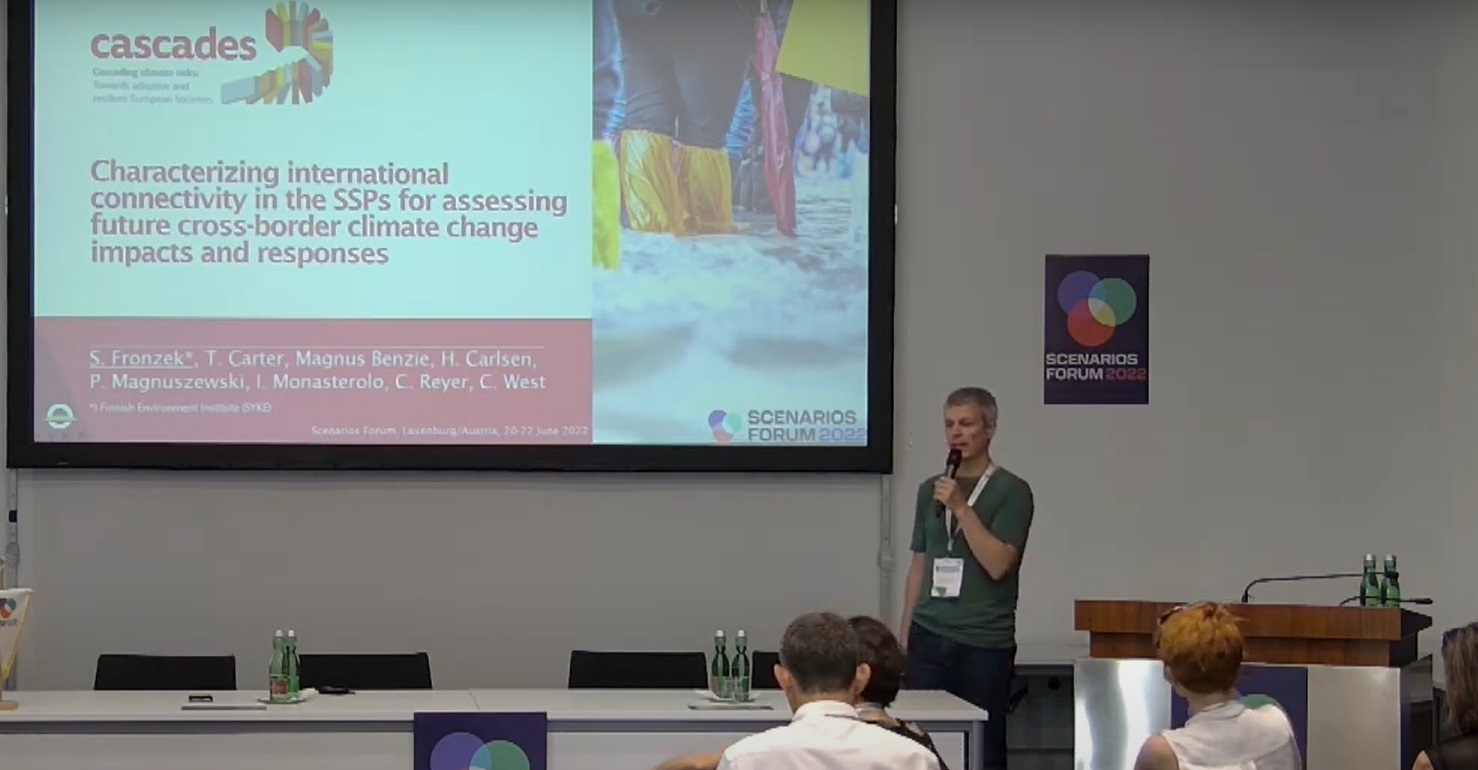
The Scenarios Forum 2022, held 20 – 22 June 2022 at the International Institute for Applied Systems Analysis (IIASA) in Laxenburg, Austria, attracted close to 500 scientist onsite and joining virtually to discuss the next generation of scenarios about climate and societal futures.
CASCADES had a strong presence at the conference by organizing a session about the role of scenarios in assessing cross-border impacts of climate change. This was one of over 50 sessions that covered a diverse set of themes around describing and assessing possible future developments for climate and society.

The cross-border theme was the focus of the session entitled “Exploring and expanding the cross-border dimensions of the SSPs”. It was discussed how the current scenario framework known as Shared Socioeconomic Pathways can be used in cross-border assessments and how it might be developed further. Cross-border climate change impacts and the context under which these evolve in the future have so far received little attention and are not addressed explicitly in the SSP framework.
Five presentations were given, covering work carried out under the CASCADES project, about framing the cross-border dimensions of the SSPs and showing examples of scenario applications designed to advance understanding of the mechanisms and relevance of cross-border impacts and responses:
- Characterizing international connectivity in the SSPs for assessing future cross-border climate change impacts and responses. Stefan Fronzek, Finnish Environment Institute
-
The transmission of global climate change via international trade – Insights from a cross-sectoral impact assessment for Austria. Nina Knittel, Wegener Center for Climate and Global Change, University of Graz:
-
Assessing Financial Risks from Physical Climate Shocks: A Framework for Scenario Generation. Irene Monasterolo, EDHEC Business School, EDHEC-Risk Institute
-
A SSP perspective on cascading climate impacts on security and European foreign relations. Adrien Detges, adelphi
-
Implications of different global development pathways for adaptation to crossborder impacts of climate change in national low-carbon transitions. Fanny Groundstroem, University of Helsinki
It was shown that both the transmission of climate risks across borders and responses to these depend on the extent to which the world is connected, e.g. through international trade, financial markets and issues related to migration and security.
The SSPs define a wide range of international connectivity that allow the exploration of cross-border climate risks in contrasting contexts, as shown for case studies on trade, security and the low-carbon transition. However, it also became clear that the finance sector has so far received little attention in the SSPs, despite recognition of the importance of using climate scenarios for climate financial risk assessment. Also, it is inherently difficult to quantify variables like social cohesion, let alone to project them into the future. This is an obstacle to studying security challenges within the SSP framework.
The session revealed that cross-border climate change impacts matter and need to be considered in impacts, adaptation and vulnerability (IAV) research and in adaptation planning. The SSP framework allows for a consistent comparison across modeling studies of different scopes and thereby helps to understand the relevance of cross-border impacts in an (inter-)national context. Improving scenario descriptions relevant for cross-border climate change impact will therefore have benefits both for practitioners and policy-makers as well as for research.



